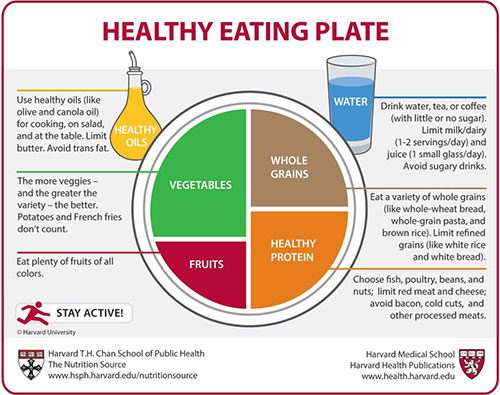We know that eating a diet full of fruits and vegetables can lead to a long and healthy life, but are there enough to go around? Apparently not.
Canadian researchers have found the world’s agriculture producers aren’t growing enough of the good stuff to feed the world’s population a nutritious diet. Instead, they’re going overboard on grains, sugars, and fats — crops that provide a cheap and easy source of calories.
In fact, the study, published in the scientific journal PLOS ONE, says farmers are growing three times less produce than what nutritionists suggest we all eat.
What Your Plate Should Look Like
The Harvard Healthy Eating Plate (HHEP) model is an internationally-recognized blueprint for consuming a healthy diet. It recommends that 50% of what we eat be made up of fruits and vegetables, while 25% should be whole grains. The other 25% is reserved for a combination of protein, fat, and dairy.

If agriculture producers want to satisfy those needs, they have to harvest 15 servings of fruits and vegetables per person per day. But according to the UN’s data from 2011, their current farming practices yield only five servings daily.
Meanwhile…
At the same time, we’re learning about a shortage in the production of fruits and veggies, the findings of another interesting study just released show that more than half of Canadians want to eat less meat.
The team at Dalhousie University found that most Canadians still consider meat an important and enjoyable part of their diets, but the majority agree it’s time to cut back. One-third say they plan to do so within the next six months.
Why? The survey indicates personal health and the environment were the top reasons why people wanted to find meat alternatives.
So What Are We Going To Do?
It’s not quite as easy as getting farmers to grow more fruits and vegetables. The study that found we don’t grow enough produce says that immediately changing the production priorities to satisfy the HHEP would cause another serious problem.
Researchers are quoted in The Globe and Mail as saying that doing so would free up 51 million hectares of arable land around the world, but the total amount of land used for agriculture would jump by 407 million hectares due to an increased availability of pasture for livestock. They predict greenhouse gas emissions would increase as a result.
They’re not suggesting we get rid of livestock farms altogether, but rather, make a conscious shift towards growing more fruits and vegetables while reducing our reliance on meat protein.
The study says animals still play an important role in the agriculture system, but that in order to be healthier, we should all be building our plates around the HHEP, looking to get our nutrients from mostly plant-based meals instead of livestock-based.
What Do You Think? Is It Doable?
I’m all about the flexitarian diet, in which you don’t give up on meat entirely, but rather, eat it a lot less often. I’m a firm believer that everyone can do this, and there are so many amazing cookbooks out there offering delicious and nutritious plant-based recipes that will keep your taste buds and tummies satisfied!
For those who can’t seem to make the shift, animal rights group PETA has been pushing for a meat tax that might make the transition easier for some people.
In the US, it recommended a 10% tax for every pound of meat sold in grocery stores. Experts agree that a heftier price tag would likely lead to reduced meat consumption, but some argue that it would also lead to less food security for some families, and that would be counter-productive.
Regardless, it’s just an idea, and there’s no movement from either the Canadian or US governments toward such a tax.
We do need governments to move towards more fruit and veggie production, though. Around the world, our health depends on it.